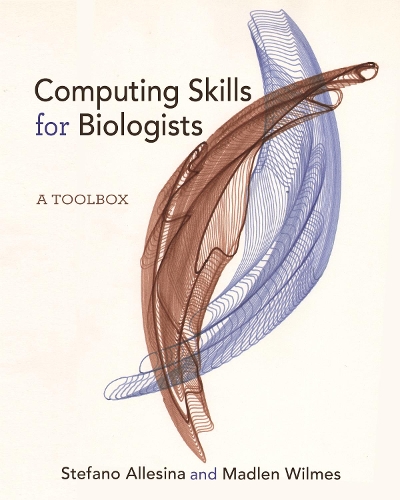
Computing Skills for Biologists: A Toolbox
(Paperback)
Available Formats
Publishing Details
Computing Skills for Biologists: A Toolbox
By (Author) Stefano Allesina
By (author) Madlen Wilmes
Princeton University Press
Princeton University Press
26th March 2019
United States
Classifications
Tertiary Education
Non Fiction
Digital and Information technology: general topics
Botany and plant sciences
Zoology and animal sciences
Computer science
Physical Properties
Paperback
440
Width 203mm, Height 254mm
Description
A concise introduction to key computing skills for biologists While biological data continues to grow exponentially in size and quality, many of today's biologists are not trained adequately in the computing skills necessary for leveraging this information deluge. In Computing Skills for Biologists, Stefano Allesina and Madlen Wilmes present a valuable toolbox for the effective analysis of biological data. Based on the authors' experiences teaching scientific computing at the University of Chicago, this textbook emphasizes the automation of repetitive tasks and the construction of pipelines for data organization, analysis, visualization, and publication. Stressing practice rather than theory, the book's examples and exercises are drawn from actual biological data and solve cogent problems spanning the entire breadth of biological disciplines, including ecology, genetics, microbiology, and molecular biology. Beginners will benefit from the many examples explained step-by-step, while more seasoned researchers will learn how to combine tools to make biological data analysis robust and reproducible. The book uses free software and code that can be run on any platform. Computing Skills for Biologists is ideal for scientists wanting to improve their technical skills and instructors looking to teach the main computing tools essential for biology research in the twenty-first century
Reviews
"Pitched perfectly for the beginning student and . . . a useful reference for the rest of us. . . . An excellent starting point for anyone about to step off into the world of computational biology."---Dr David Martin & Laura Pugh, The Biologist
"The books raison detre is to provide an appetizer for efficient work at the computer. To do so. the authors cometently and engagingly outline the key advantage of each language for a specific task, introduce its working in a tutorial-like style, before illustrating the efficiency with a specific, yet typical task."---Carsten F. Dormann, Basic and Applied Ecology
Author Bio
Stefano Allesina is a professor in the Department of Ecology and Evolution at the University of Chicago and a deputy editor of PLoS Computational Biology. Madlen Wilmes is a data scientist and web developer.
